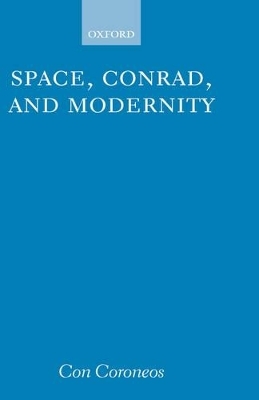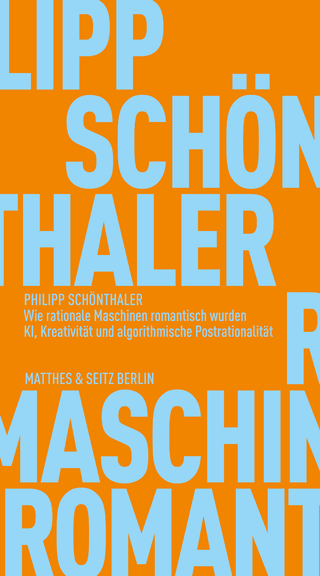
Space, Conrad, and Modernity
Seiten
2002
Oxford University Press (Verlag)
978-0-19-818736-3 (ISBN)
Oxford University Press (Verlag)
978-0-19-818736-3 (ISBN)
Recent literary and cultural criticism is preoccupied with space. Coroneos uses the work of Joseph Conrad to unravel aspects of spatial thought from the geopolitical idea of 'closed space' in the early twentieth century to the influence of Saussurean linguistics in contemporary criticism and theory.
Recent literary and cultural criticism has taken a spatial turn. Nowadays, to speak is to speak from, to, or in; to know something is to have 'mapped' its discursive operation. This book locates this development within the opposition between a space of things and a space of words, tracing various aspects of its emergence from the geopolitical idea of 'closed space' which developed in the early twentieth century to the influence of Saussurean linguistics in contemporary criticism and theory.
The focus of the study is the work of Joseph Conrad, in whom the opposition between a space of words and a space of things is strikingly figured. Part I deals with several versions of closed space, using an ancient spatial paradox of God (as the sphere of which the centre is everywhere and the circumference is nowhere) to raise questions about the relations between geography, language, and interpretation. Part II deals with the agitation around finitude and the limit, and the desperate attempt to discover in the resources of language a means of liberation.
Through these ideas the book explores some of the more disreputable, marginal, or unglimpsed elements in modernism - including the rise of spy fiction, anarchist geography, the spiritualist movement, the invention of artificial languages, the history of laughter, and solar energy. Among the figures drawn into dialogue with Conrad are John Buchan, Woolf, Joyce, Peter Kropotkin, René de Saussure (brother of the famous Ferdinand), Henri Bergson, the filmmakers George Méliès and Carol Reed and, in particular, Michel Foucault -- this 'nouvelle cartographe' as Gilles Deleuze described him -- whose anxious negotiation with spatial ideas touches the book's deepest understanding.
Recent literary and cultural criticism has taken a spatial turn. Nowadays, to speak is to speak from, to, or in; to know something is to have 'mapped' its discursive operation. This book locates this development within the opposition between a space of things and a space of words, tracing various aspects of its emergence from the geopolitical idea of 'closed space' which developed in the early twentieth century to the influence of Saussurean linguistics in contemporary criticism and theory.
The focus of the study is the work of Joseph Conrad, in whom the opposition between a space of words and a space of things is strikingly figured. Part I deals with several versions of closed space, using an ancient spatial paradox of God (as the sphere of which the centre is everywhere and the circumference is nowhere) to raise questions about the relations between geography, language, and interpretation. Part II deals with the agitation around finitude and the limit, and the desperate attempt to discover in the resources of language a means of liberation.
Through these ideas the book explores some of the more disreputable, marginal, or unglimpsed elements in modernism - including the rise of spy fiction, anarchist geography, the spiritualist movement, the invention of artificial languages, the history of laughter, and solar energy. Among the figures drawn into dialogue with Conrad are John Buchan, Woolf, Joyce, Peter Kropotkin, René de Saussure (brother of the famous Ferdinand), Henri Bergson, the filmmakers George Méliès and Carol Reed and, in particular, Michel Foucault -- this 'nouvelle cartographe' as Gilles Deleuze described him -- whose anxious negotiation with spatial ideas touches the book's deepest understanding.
1. SUCH A CRUEL KNOWLEDGE; 4. MYSTICAL CRITICISM
| Erscheint lt. Verlag | 7.2.2002 |
|---|---|
| Verlagsort | Oxford |
| Sprache | englisch |
| Maße | 145 x 224 mm |
| Gewicht | 358 g |
| Themenwelt | Geisteswissenschaften ► Philosophie ► Sprachphilosophie |
| Geisteswissenschaften ► Sprach- / Literaturwissenschaft ► Anglistik / Amerikanistik | |
| Geisteswissenschaften ► Sprach- / Literaturwissenschaft ► Literaturwissenschaft | |
| Sozialwissenschaften | |
| ISBN-10 | 0-19-818736-X / 019818736X |
| ISBN-13 | 978-0-19-818736-3 / 9780198187363 |
| Zustand | Neuware |
| Haben Sie eine Frage zum Produkt? |
Mehr entdecken
aus dem Bereich
aus dem Bereich
Macht und Legitimität politischer Sprache im Prozess der europäischen …
Buch | Softcover (2023)
Nomos (Verlag)
74,00 €
KI, Kreativität und algorithmische Postrationalität
Buch | Softcover (2024)
Matthes & Seitz Berlin (Verlag)
16,00 €
Wie die Menschheit zu ihrer größten Erfindung kam
Buch | Softcover (2022)
C.H.Beck (Verlag)
18,00 €


